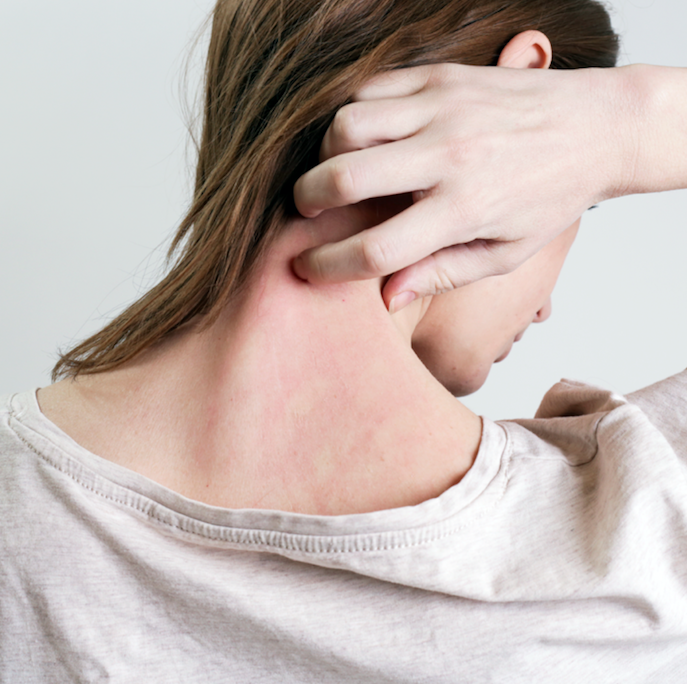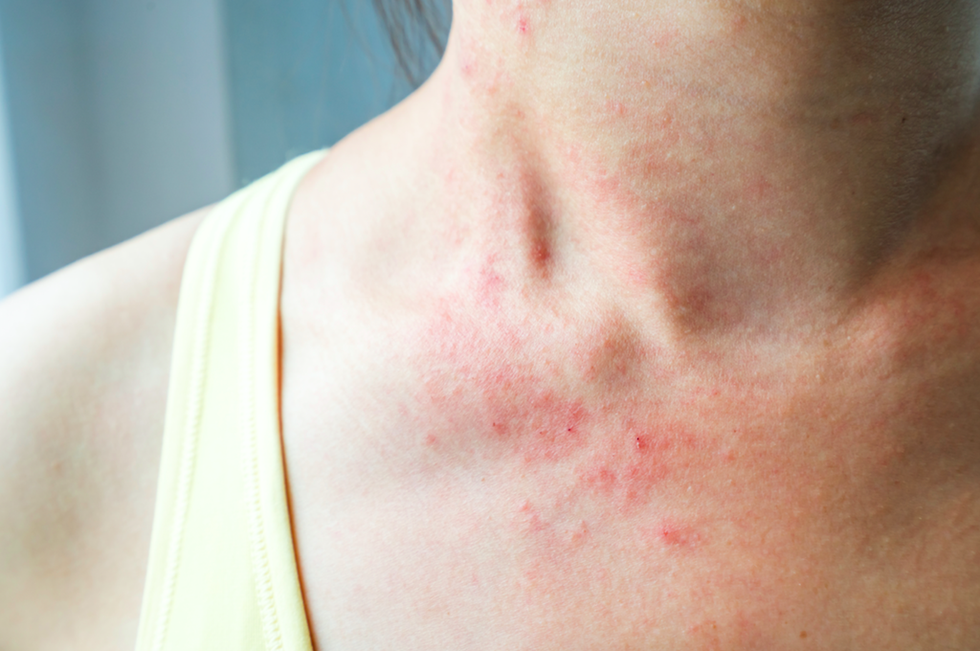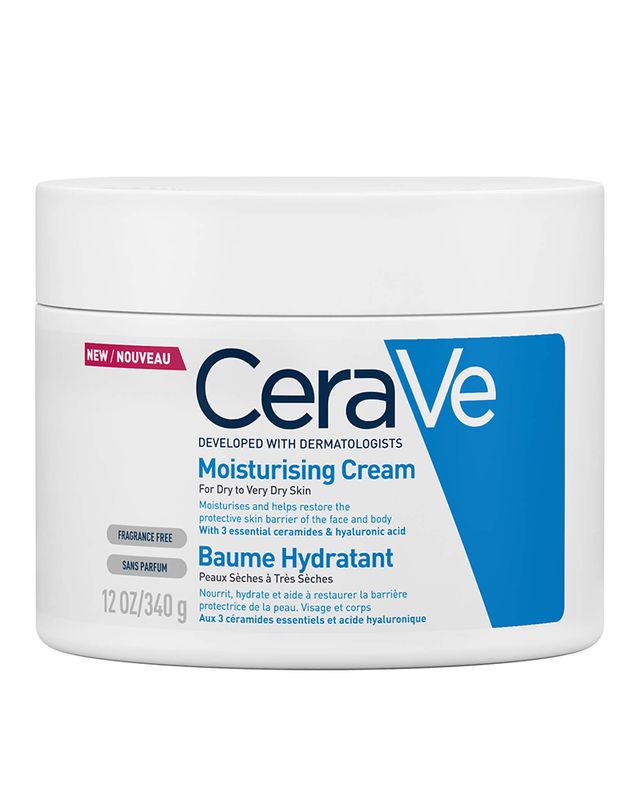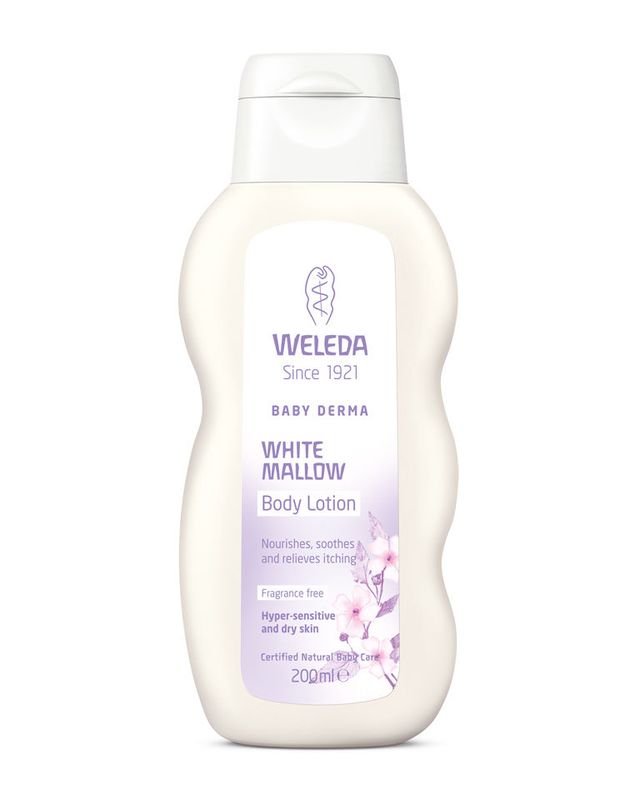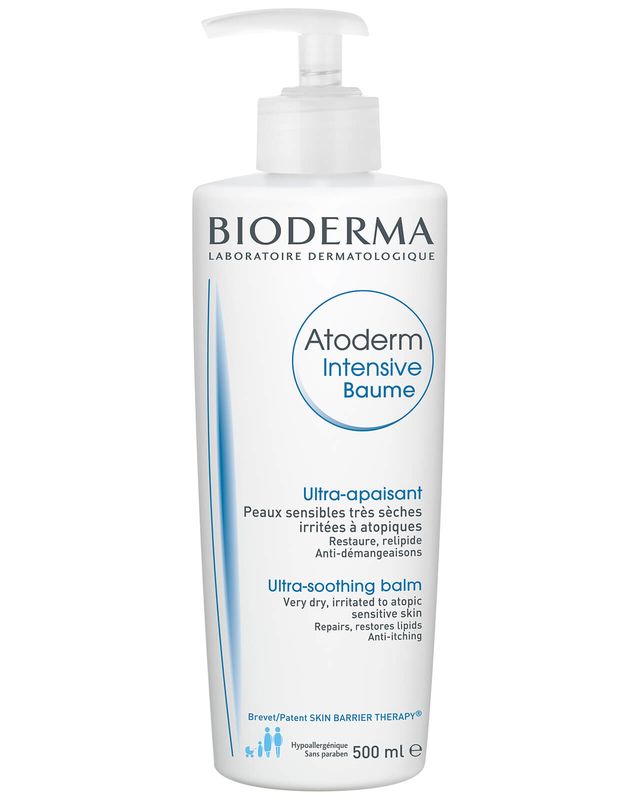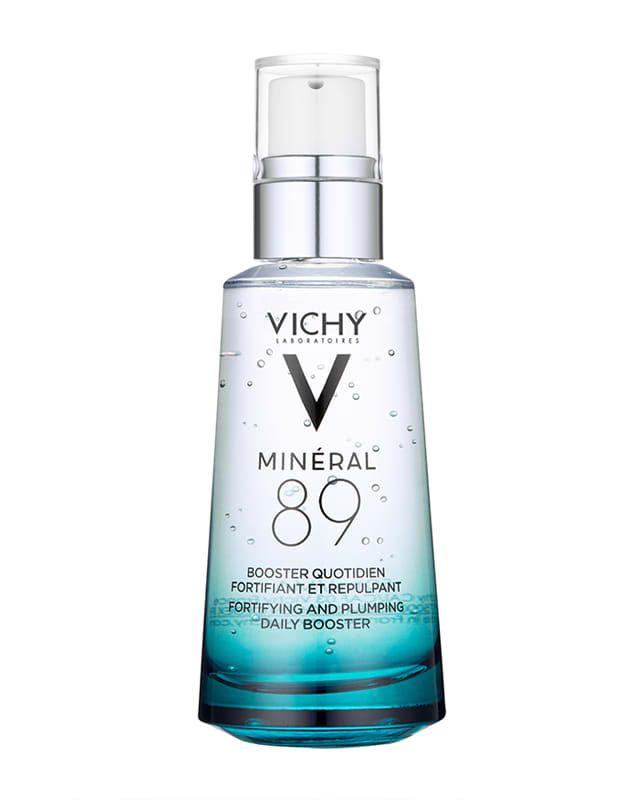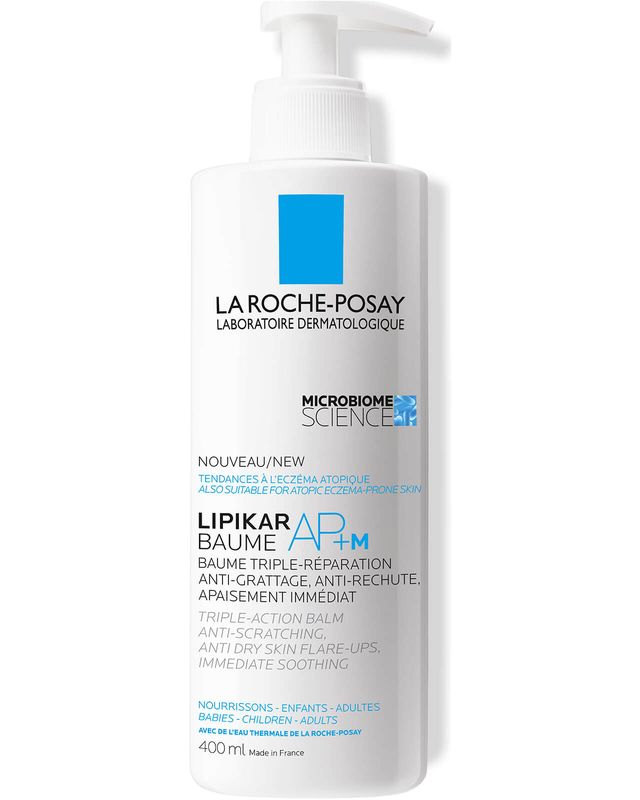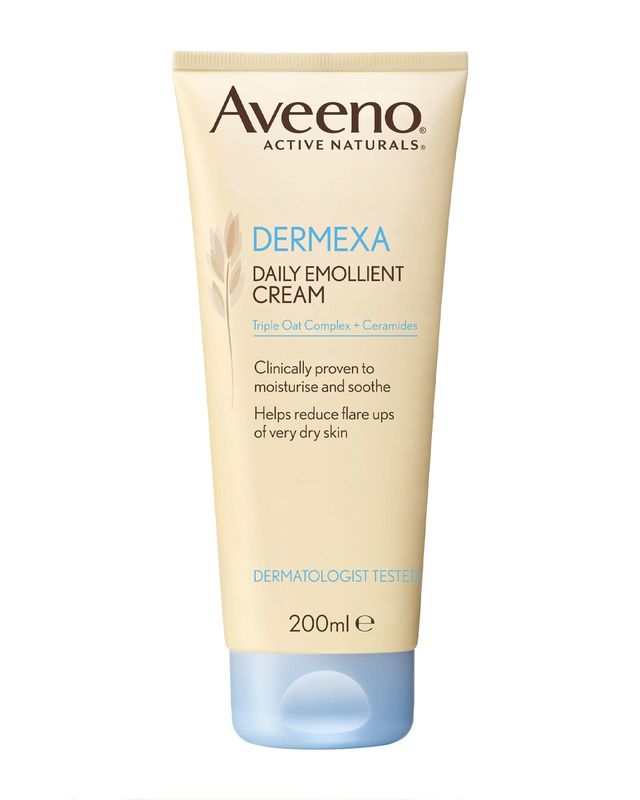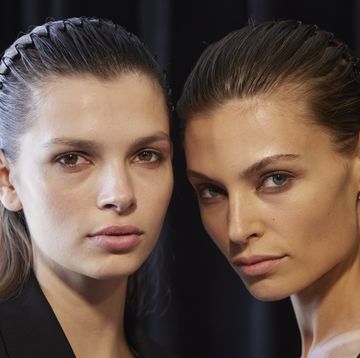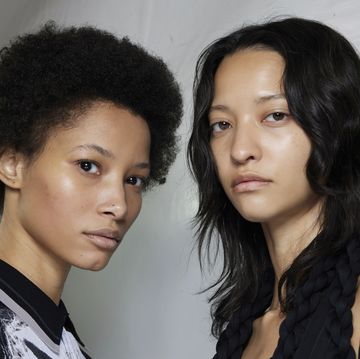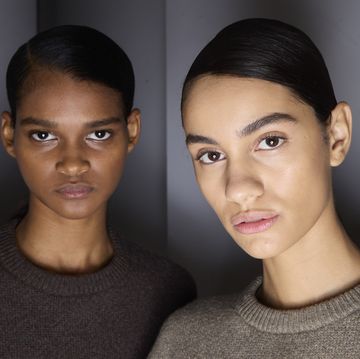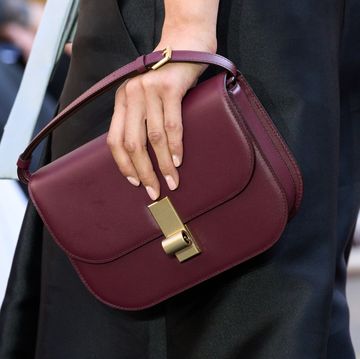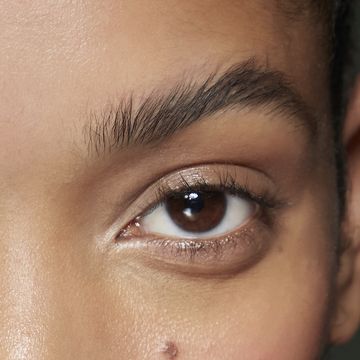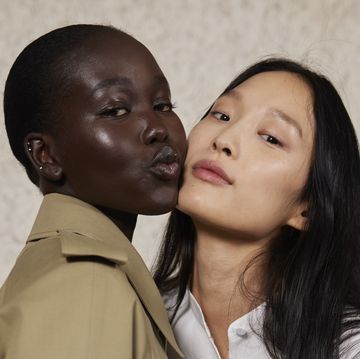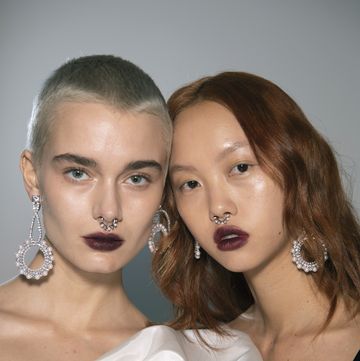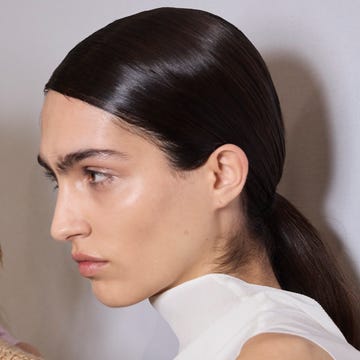As summer is (almost) here in full swing, it may mean picnics in the park and a trip to your local beer garden but for some of us (approximately 15 million in the UK, to be exact) the summer weather comes as a trigger for 'eczema season'. Which is just about as fun as it sounds.
Although eczema typically affects children more than adults, certain environmental or physical changes can cause a dreaded flare up, and as eczema sufferers will know, it's incredibly difficult to get it back under control once something has set it off.
Not only is eczema uncomfortable but the constant irritation can mean we lose sleep and if we do give in to the desire to scratch an itch, it can lead to scarring which is a whole other kettle of fish to get rid of.
However, there is hope. We spoke to the skincare experts on the ins and outs of eczema so you can manage the flare up, even in the hot summer months.
What is eczema?
Eczema is a skin condition which comes in a few different varieties, all of which leave the skin looking inflamed and irritated. In paler skin tones this will come across as looking like patches of angry-red skin and, in darker skin tones, it can look purple or grey. Skin becomes incredibly itchy, dry and cracked which is what makes it so uncomfortable.
As Consultant Dermatologist, Dr Ophelia Veraitch at The Cranley Clinic, explains: ‘Atopic dermatitis, commonly known as eczema, is a chronic, itchy skin condition. It often occurs in childhood, but can occur at any age including later on in life. Eczema can appear quite varied from patient to patient, but during flares most people get inflamed, red and sometimes weepy patches of skin.
'Between flares the skin can look dry, thickened and appear darker than the normal skin tone,' says Dr Veraitch. 'When the skin is wet, weeping or has a yellow crust these can all be signs of a superimposed staphylococcus skin infection which is more common in those with poorly controlled eczema.'
Avoiding the urge to itch is key with this skin condition. Although it is oh so tempting, itching and scratching the skin leads to even more inflammation, possible infection and breaking in the skin which only exacerbates the problem.
What causes eczema?
There is no one answer to why some people get eczema, whereas others don't and the actual cause of it is still unknown. However, there are a few things we do know.
As Dr Tosin Sotubo, founder of Mind Body Doctor explains: 'It’s usually a combination of environmental factors and genetics. People with a type of eczema called atopic eczema have an increased immune response which leads to inflammation and the itchy, red rashes we see. This tends to run in families and often runs alongside other immune sensitive conditions such as hay fever and asthma. This predisposition combined with environmental factors such as exposure to chemicals, soaps and other irritants makes this set of people more prone to flare ups.'
According to a number of studies, eczema is more likely to effect women than men and women experience more severe symptoms of the skin condition. That makes sense...
If you come across a lot of irritants, such as soaps, hard water, dust, washing detergents or chemical cleansing products, you're more likely to see skin react and flare up.
Stress has also been linked to causing a flare up of eczema, as the release of cortisol (the lovely stress hormone) over a long period of time can cause inflammation throughout the body.
Equally, temperature changes also make a huge difference to the state of your eczema. Depending on your skin, some of us see a flare up in the winter or summer months, this is due to weather changes such as humidity, cold or dry air causing skin to become dry and dehydrated.
Where does eczema normally occur?
Each individual will have completely different spots on the body where their eczema occurs but some of the most popular are:
- Eyelids
- Scalp
- Nipples
- Hands
- Behind the knees
- Creases of our elbows
- Feet
Can you get rid of eczema?
Whilst you can avoid certain factors that are triggering your eczema and treat the area when you have a flare up, there isn't an official cure for the skin condition.
'Unfortunately, there is no current cure to completely get rid of eczema but there are a lot of treatments options to help relieve the symptoms and reduce flare ups. Plus, many people find that their eczema improves over time', believes Dr Sotubo.
How to treat eczema
Dr Sotubo believes you can soothe your eczema flare up with the following three step approach:
- Self Care. This includes avoiding any irritants you know aggravate the skin.
- Moisturising. 'This is so important when it comes to looking after your skin with eczema. You need to be moisturising your skin as often as possible and this often means even when you’re on the go', says Dr Sutubo.
- Topical Corticosteroids. This is a type of steroid medication that can be prescribed by your doctor to reduce inflammation.
For those with milder eczema moisturising with the right products on a regular basis is enough to do the trick, this includes not using products with irritants such as fragrance. However if they're not doing the trick it's best to consult your GP.
Like this article? Sign up to our newsletter to get more articles like this delivered straight to your inbox.
In need of more inspiration, thoughtful journalism and at-home beauty tips? Subscribe to ELLE's print magazine now and pay just £6 for 6 issues. SUBSCRIBE HERE
